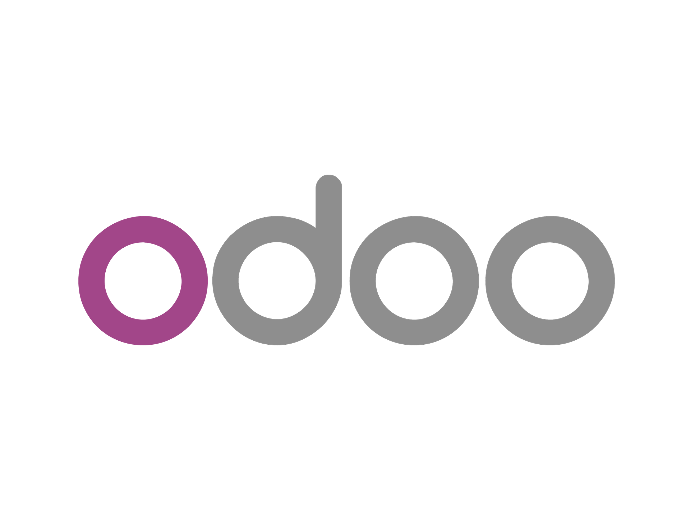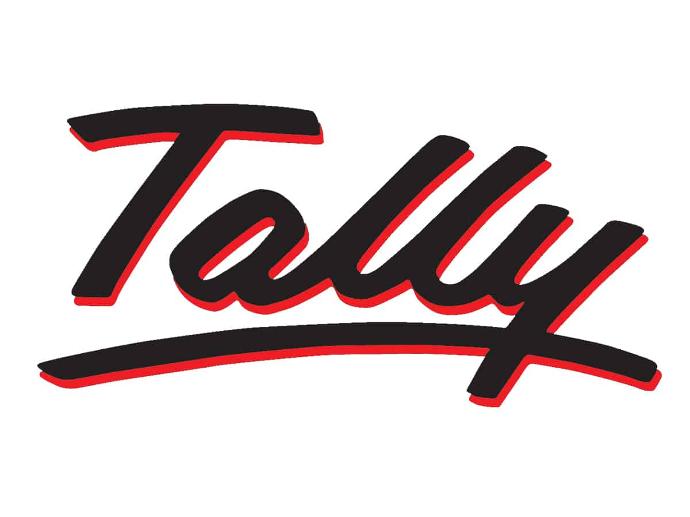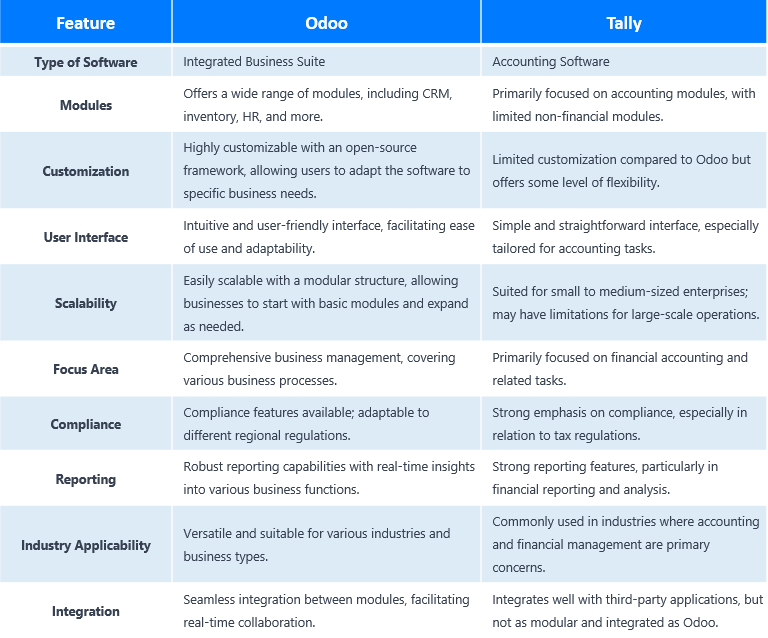Introduction:
In the realm of business management solutions, Odoo and Tally stand out as two prominent players. Each platform comes with its own set of features and capabilities designed to streamline business operations. In this blog, we'll explore what Odoo and Tally are, highlight the key differences between them, delve into the benefits of Odoo over Tally, present a real-life case study, and conclude with insights to help you make an informed decision for your business.

What is Odoo?
Odoo is an open-source enterprise resource planning (ERP) software that encompasses a suite of integrated business applications. It covers a wide range of business needs, including sales, accounting, inventory management, CRM, human resources, and more. One of Odoo's key strengths is its modular architecture, allowing businesses to choose and implement only the modules they require.
What is Tally?
Tally, on the other hand, is a well-established accounting software that has been a stalwart in the business world for decades. Originally designed for accounting and financial management, Tally has expanded its functionalities to include inventory management, payroll, and compliance features. It is widely used by small and medium-sized enterprises (SMEs) for its simplicity and reliability.

Difference between Odoo and Tally:
The primary difference between Odoo and Tally lies in their scope and flexibility. While Tally focuses primarily on accounting and financial management, Odoo offers a comprehensive suite of applications that cover various business processes. Odoo's modular approach allows businesses to scale and adapt their ERP system according to their evolving needs, making it a versatile solution for diverse industries.
Benefits of Odoo over Tally:
Integrated Approach
Odoo's integrated system ensures seamless data flow between different departments, eliminating data silos and enhancing collaboration
Scalability
Odoo is highly scalable, making it suitable for both small businesses and large enterprises looking to expand their operations
Modular Flexibility
Businesses can choose and customize the modules they need, preventing unnecessary complexity and reducing costs.
User-Friendly Interface
Odoo's intuitive interface makes it easier for users to navigate and utilize various features, reducing the learning curve.

Case Study
Let's consider a manufacturing company that transitioned from Tally to Odoo. The company needed a more holistic solution to manage not only its accounting but also its inventory, production, and customer relationships. By implementing Odoo, the company experienced improved efficiency in tracking inventory levels, streamlined production processes, and enhanced communication between departments. The modular approach allowed them to adapt the system as their business grew, highlighting the scalability of Odoo.
Conclusion:
Choosing between Odoo and Tally depends on your business requirements and long-term goals. Tally remains a robust choice for businesses primarily focused on accounting, while Odoo offers a broader spectrum of applications for those seeking an integrated and scalable ERP solution. Consider your business needs, scalability, and desired functionalities to make an informed decision that aligns with your company's growth and efficiency goals.
We are just a call away to help you grow. Contact Us